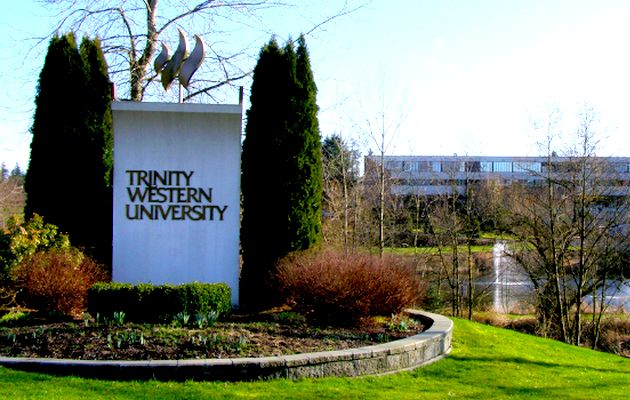Ban on Christian law graduates declared illegal by court
Banning Christian university graduates from practising law over opposition to homosexuality isn't legal, rules Canadian court.
Christian Post · MONTREAL · 04 JUNE 2015 · 17:00 CET

A Canadian province's highest court has ruled that a Christian academic institute's lawyers can't be banned from practicing law due to the university's views on homosexuality.
The Nova Scotia Supreme Court ruled Wednesday that Trinity Western University students could join the bar, overruling a decision last year by the Nova Scotia Barristers' Society.
Justice Jamie S. Campbell, author of the opinion, concluded that the society's "resolution and regulation infringe on the freedom of religion of TWU and its students in a way that cannot be justified."
"For many people in a secular society religious freedom is worse than inconsequential. It actually gets in the way. It's the dead hand of the superstitious past reaching out to restrain more important secular values like equality from becoming real equality," wrote Campbell.
"The discomforting truth is that religions with views that many Canadians find incomprehensible or offensive abound in a liberal and multicultural society. The law protects them and must carve out a place not only where they can exist but flourish."
Based in British Columbia and established in 1962, TWU was founded as an evangelical Christian liberal arts academic institution.
As part of its Christian identity, TWU has a "community covenant" for its students and faculty that, among other obligations, states that community members will "voluntarily abstain" from "sexual intimacy that violates the sacredness of marriage between a man and a woman."
"The university's mission, core values, curriculum and community life are formed by a firm commitment to the person and work of Jesus Christ as declared in the Bible," reads the covenant.
"The community covenant is a solemn pledge in which members place themselves under obligations on the part of the institution to its members, the members to the institution, and the members to one another."
Other actions that the covenant calls for its community to abstain from include "gossip, slander, vulgar/obscene language," ... "stealing, misusing or destroying property belonging to others," ... "drunkenness, under-age consumption of alcohol, and the use or possession of illegal drugs."
Last May, TWU filed lawsuits against the Nova Scotia Barrister Society, as well as other legal challenges in response to efforts against the university's official recognition.
"The B.C. university announced Tuesday it is launching lawsuits in Ontario and Nova Scotia, where the provincial bar associations have voted not to accredit graduates of the law school, which is set to open in 2016," reported CBC News.
"It will also apply to be added to a lawsuit in B.C., where Toronto lawyer Clayton Ruby is suing the provincial government over its decision to approve the law school."
At the center of each of these legal actions, according to CBC, was TWU's position calling for no sexual conduct outside of heterosexual marriage.
The Nova Scotia lawsuit was brought before the province's Supreme Court in December, with arguments being heard over a span of a few days.
Regarding the recent Campbell decision, TWU spokesperson Guy Saffold stated that it was "an exceptionally important decision."
"It affirms that protection of religious freedom is and must continue to be central value in Canada's pluralist society," continued Saffold.
"This decision is important not only to TWU's effort to launch a School of Law … but also, we believe it sets an extremely valuable precedent in protection of freedoms for all religious communities and people of faith in Canada."
NSBS President Tilly Pillay said that the legal organization would review the Campbell decision before deciding what to do next.
"We appreciate that Justice Campbell dealt with this matter very quickly and comprehensively," said Pillay in a statement.
"We are analyzing the decision and will review it with our legal counsel before we can determine what the next steps might be. There is much to consider."
Published in: Evangelical Focus - life & tech - Ban on Christian law graduates declared illegal by court
